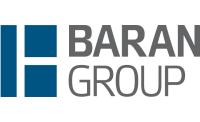
An Israeli engineering company that participated in the construction of the Tel Aviv–Jerusalem railway, which cuts through the occupied Palestinian territory. It is involved in the displacement of Palestinians and in construction projects for the Israeli military and police.
Baran Group Ltd is an Israeli engineering, infrastructure, and construction company. It is one of Israel's largest engineering companies and operates in Africa, Asia, Europe, and the United States.
The company managed the construction of part of the Tel Aviv–Jerusalem railway, which cuts through the occupied West Bank, according to Who Profits.
In addition, Baran has contributed to the forced displacement of thousands of Palestinian Bedouins in the Naqab/Negev. In 2020, the company signed a contract with Israeli weapons manufacturer Elbit Systems to plan and manage the relocation of one of its factories. Expected to be finalized in 2024, the relocation will likely forcibly displace 36,000 Palestinian Bedouins; lead to the demolition of over 2,000 buildings, including 1,200 Bedouin homes; and expose Bedouin communities in the region to serious health risks.
The company also provides construction services to the Israeli military and police. For example, it managed a border construction project for the Israeli military, complete with camera and radar surveillance equipment. While the location of the project was not disclosed, it was likely for Israel's 2013 construction of a new barrier on its border with Egypt. Baran also helped build an Israeli military storage base for a project commissioned by the U.S. Army Corps of Engineers and participated in the construction and maintenance of buildings used by the Israeli police, according to Who Profits.
In addition, Baran managed network deployment projects for Israel's largest telecommunication providers, including Cellcom, Partner, Pelephone, and Yes, all of which serve illegal Israeli settlements, military bases, and checkpoints.
